
Gandhi is applicable in today's Burma.
By Dr. Sein Myint
December 19, 2007 - The question "Is Gandhi applicable in today's Burma ?" has been raised by a writer from the Shan Herald Agency for News. In the nonviolent struggle against the Imperial British colonists in South Africa and in British India, Gandhi told his followers not to take 'an eye for an eye' but to take 'blows from the adversaries, to make them feel guilty for their cruel actions.'
Shan Herald's author pointed out that Gandhi was not fighting against 'lawless power' as in present day Burma, for both South Africa's apartheid regime and the British were known as 'apostles to the Rule of Law.' And when Life's Margaret Bourke-White asked Gandhi if he believed that he could use nonviolence against someone like Hitler, Gandhi's response was, "When I despair, I remember that all through history, the way of truth and love has always won. There have been tyrants and murderers and, for a time, they can seem invincible. But in the end they always fall. Think of it always." The Shan Herald's writer seems to have agreed.
Certainly, the writer from Shan Herald is not the first person; this question has been on the mind of many people from the Burmese democratic opposition for quite some time now. The question is very relevant to our cause in the struggle for freedom from the military tyranny in Burma.
Mahatma Gandhi's nonviolent struggle has always been an inspiration for all freedom fighters including Burma 's democracy icon, Daw Aung San Su Kyi, who is an ardent believer and practitioner of this doctrine. Her father, the late Bogyoke Aung San, however, relied on more conventional methods, using all or any available opportunities in his struggle for Burma's independence from the British and later from the Japanese.
In the movie, Thirteen Days, about the Cuban Missile crisis in October, 1962, the United States President JF Kennedy boldly applied a naval blockade on Cuba while confronting incoming USSR ships loaded with long range nuclear missiles. At the same time he pressured Soviet Premier Khrushchev to withdraw the existing short and medium range nuclear missiles from Cuba. The drama intensified as the Soviet ships approached the blockade and the prospect of the World War III increased.
The world narrowly escaped from the brink of nuclear holocaust when the Soviet ships decided to turn around and avoided the confrontation. Nikita Khrushchev was the first to blink in this nuclear showdown with President Kennedy, and subsequently paid the price and lost his job. Next year President Kennedy was allegedly assassinated by a lone assassin, a communist sympathizer Lee Harvey Oswald, in Dallas, Texas.
The question is what might have happened if Khrushchev had not backed down but decided to order his ships to continue sailing into the American naval quarantine zone and ordered Soviet nuclear submarines accompanying the cargo ships to retaliate, once the US navy destroyers fired upon the Soviet ships.
At the same time the Soviet medium and short range nuclear missiles were already aimed at the east coast of the United States, including Washington DC, the US was standing by at Defcon-2 level, with B-52 strategic bombers loaded with nuclear bombs up in the air, and the ICBM silos in the Midwest were opened-up ready for firing. It could have been the beginning of a nuclear war followed by a holocaust.
"Did President Kennedy make the right move by calling Khrushchev's bluff and ordering a naval blockade on Cuba ?" Everyone in the While House was extremely nervous and tense during the showdown and was quite relieved once they heard that the Soviet ships had turned back. Did meeting the 'force' with 'force' pay off?
It is a total reverse from offering the other cheek to your enemy. But to answer the question, first it is essential for us to examine and understand everything about our adversary; i.e. their strengths, weaknesses, culture, belief, attitude, mentality, up-bringing, and all other prevailing circumstances that are likely to change with time. And compare notes with all relevant historical background before we decide on the best possible action.
For example, the attitude and mentality of the late 19th century Imperialist British Raj and 21st century Burmese military dictator cannot have been the same, although there could be some similarities on the methods applied to quell and control demonstrations against them. And in the prevailing political circumstances supporting and influencing the decisions of both regimes are not the same.
Therefore the decisions by the Governor-General in British India against the nonviolent Indian Congress could not be the same as the decisions by the Burmese military junta against the nonviolent Buddhist monks and activists.
Hence, the short answer to the question of whether nonviolent methods will work against the hard-line military dictators in Burma is, 'yes' it will work in the end, but when is the end? This is an important question, for the end may come next year or in ten years. But, one thing for certain is that many people inside the country will have to endure much more suffering before they obtain the fruit of freedom. Anyhow, our Lord Buddha taught us that Life itself is 'suffering.'
Dr. Sein Myint is a member of Strategy Group for Burma and Technical Advisory Network (TAN), a team of Burmese intellectuals. He also serves as Director for Justice for Human Rights in Burma (JHB) and as a member of Board of Director for Burma Fund, the financial arm of NCGUB. Dr. Sein Myint received his engineering degree from Rangoon Institute of Technology and his Ph.D. from University of Manchester , United Kingdom . Currently he is working as Fire and Gas Consultant for a major oil company in Alaska, USA..





















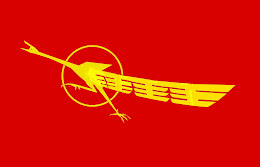





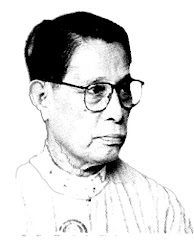


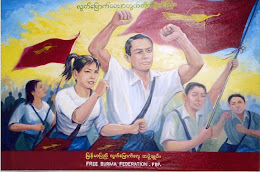





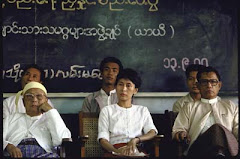

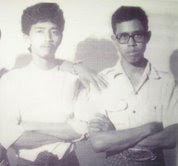

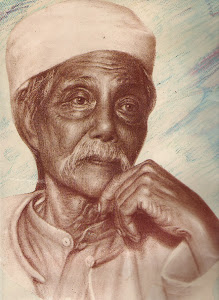
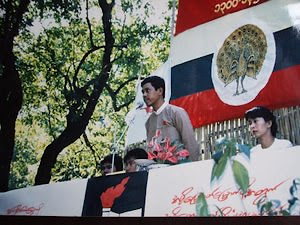
2 comments :
Dr Sein Myint has to remember that Gandhi fought against the British government which was irrelevant to compare with SPDC junta. Whatever you say British government gave B class in Insein to the Burmese politicians who were against them. You know how this junta treats to the people in Insein and the whole country. Kennedy was right to confront Russia as his speculation was right. Russia has nuclear weapon but not enough to win a war. Warsaw bloc could not support Russia if there was war but NATO could. The animal which has horns will be scared when it faces another animal with bigger horns. Same theory applied in Burma. Ne Win held a talk with CBP because they have arms. SPDC talked to ethnic groups because they have arms. This junta always rejected NLD's offer to them and never bother to talk because they believe that they can do whatever they want to NLD. If NLD has 5000 soldiers, then, they will say let's talk. How many years has UN been asking this junta to have a dialogue with NLD? How many UN envoys have to be changed? I don't think that Gambari will last long. SPDC will play the same game unless they can really see bombs and missiles coming to them.
What Ko Mg Win wrote is quite realistic and interesting.Actually, the original author had some attitude to criticize ahaimsa,non-violence as being quixotic in nature.(He said only at the end, this dhamma will would be applicable and he argued who could know when this end would be)
Some paradigms can be helpful to be understood about this ahainmsa dhamma.
A policy prescription for the rule of law (rechstatt) can be right and fair for one individual. But this prescription can be a parody of justice at the level of a community. In this way, a policy prescription that is good and right for a community can also be travesty for a system of country.Even a prescription that seems to be true and acceptable to a country can be illegitimate and rude for the global community.Conversely speaking,even a policy prescription that is true and acceptable to the global level can be incorrect and ignoble to an individual in turn.If you see the sixth attribute of Dhamma, what Buddha convinced us is "knowing of dhamma commensurates with the level of ability of thinking of the individual".
A universal and timelessly true principle like myetta,ahaimsa or tittsa will become powerful only when a person who is living outside all these realms of the mundane world i.e. a person who is living in the spiritual world is able to apply all his spiritual powers without his selfish interest.For these universal powers to be unleashed, we also need an unleashed personnel of an unimaginable spiritual milestone.
The answer why all other countries including our Burma can't apply Ahainsa dhamma for success of their revolution as India did is very simple. We never have had a real "spiritual leader" like Gandhi in our ancestry.This is up to the luck of our country. Probably(this can also be optimistic), we don't need bloodshed revolutions like '88 or '07 if we ever have had a spiritual leader like Gandhi in Burma history.
Thanks,
Burmakin
http://www.burmakin.blogspot.com/
Post a Comment